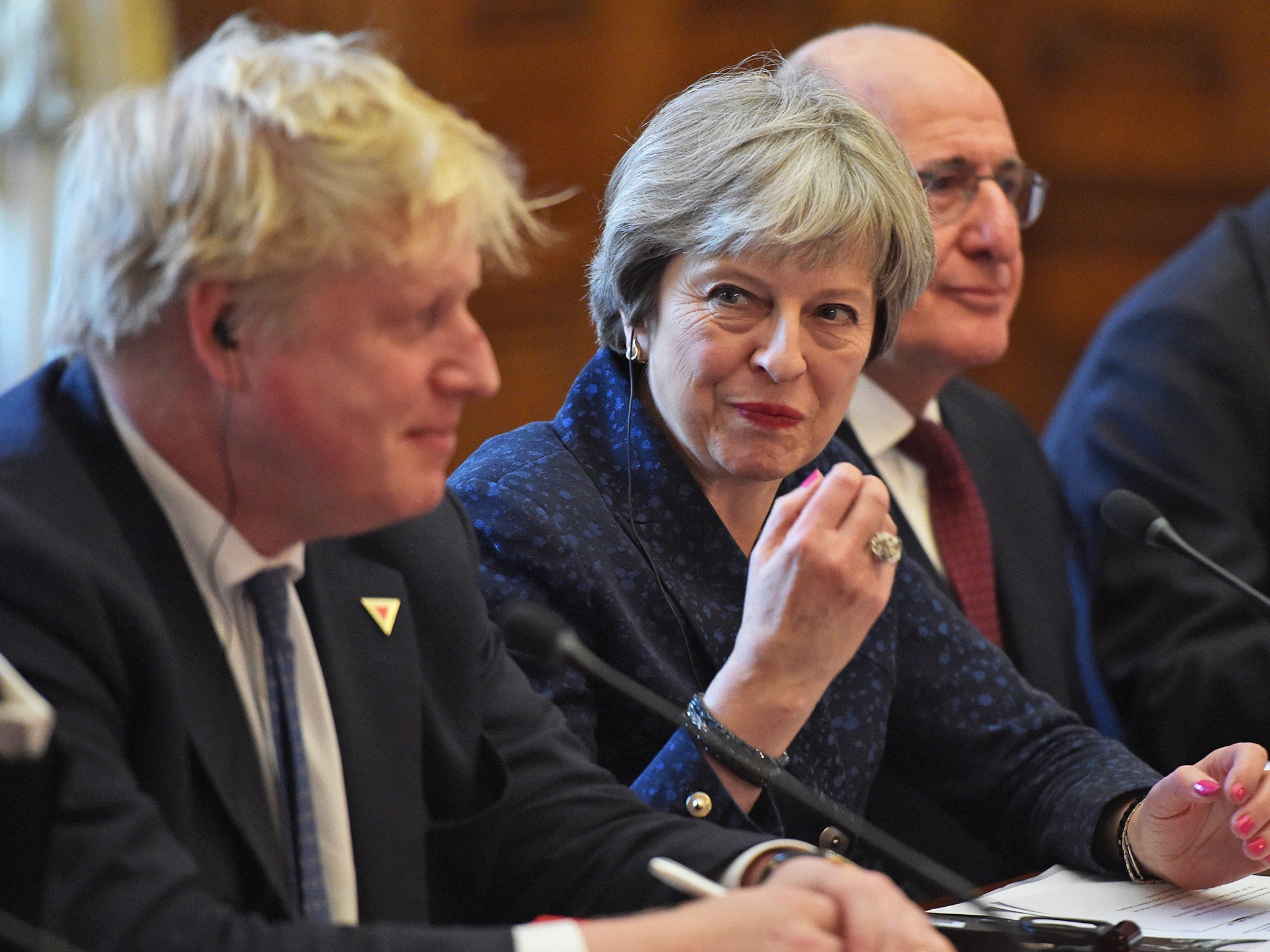Boris Johnson is deliberately raising the stakes now – Theresa May needs to decide where she stands
That Mr Johnson can label the prime minister’s plan 'crazy' and then see Downing Street express 'full confidence' in him epitomises Ms May's weak position. But Brexit is happening and the country shouldn't be held to ransom by party politics

When Boris Johnson went to Washington to make a last-minute plea to the Trump administration not to pull out of the Iran nuclear deal, he invited the Daily Mail to accompany him. As a journalist himself, Mr Johnson knew that the newspaper was rather more interested in the cabinet’s crunch decision on an EU customs agreement than the fine print of the Iran deal.
The foreign secretary also knew that, whatever Donald Trump’s decision on Iran, his secondary mission could easily be accomplished. “Boris Goes To War on ‘Crazy’ No 10 Trade Plan,” the Mail’s front page duly screamed on Tuesday. Mr Johnson told the paper that Theresa May’s favoured customs partnership was “totally untried and would make it very, very difficult to do free trade deals”. He added: “That’s not taking back control of your trade policy, it’s not taking back control of your laws, it’s not taking back control of your borders and it’s actually not taking back control of your money either, because [EU] tariffs would get paid centrally back to Brussels.”
Mr Johnson is right that Ms May’s plan might limit the scope of trade deals with non-EU countries, but they could take years and the benefits are far from bankable. He is wrong to accuse Ms May of breaking her promise that the UK will control its laws, borders or money. Handing over EU tariffs on goods heading to the bloc via the UK would not be a payment by the UK but an administrative arrangement. Nor would a customs partnership mean any weakening of immigration controls, as he seems to imply, or the UK’s right to make its own laws.
Technically, the foreign secretary has not quite breached collective cabinet responsibility since ministers are still considering two options – Ms May’s idea and the rival “maximum facilitation” proposal backed by the Brexiteers, which would reduce rather than eliminate border checks through technology and trusted trader schemes.
That Mr Johnson can label the prime minister’s plan “crazy” and then see Downing Street express “full confidence” in him, however, epitomises Ms May’s weak position.
Although he did not use his interview to threaten to resign, Mr Johnson has already done that indirectly, as we have reported. His latest comments deliberately raise the stakes and risk pushing himself into a corner. If Ms May sticks to her plan, as we think she should, and wins cabinet approval for a version of it, Mr Johnson would surely have to quit to have any credibility with the Brexiteer backbenchers and Tory members he hopes will one day enable him to become party leader. Clearly, his remarks are designed to point a gun at Ms May’s head so that she blinks first.
Ms May might be tempted to resort to another fudge, a recipe which has just about held her party together on Brexit to date. But time is running out. There is a risk that negotiations with the EU will collapse if the UK does not make new proposals soon to resolve the Irish border question. British officials who have taken soundings in Brussels believe the customs partnership can do that.
Although some Brexiteers would not lose sleep over a no-deal exit next March, parliament would probably prevent such a disaster. So the customs partnership remains the least worst option in play.
At some point, the prime minister will need to show leadership to resolve the fundamental question of whether the UK remains close to its biggest market or risks breaking away for future trade deals elsewhere in the world. We have no doubt that the former would be better for the economy than the latter. But whatever Ms May decides, she should do so quickly.

Join our commenting forum
Join thought-provoking conversations, follow other Independent readers and see their replies